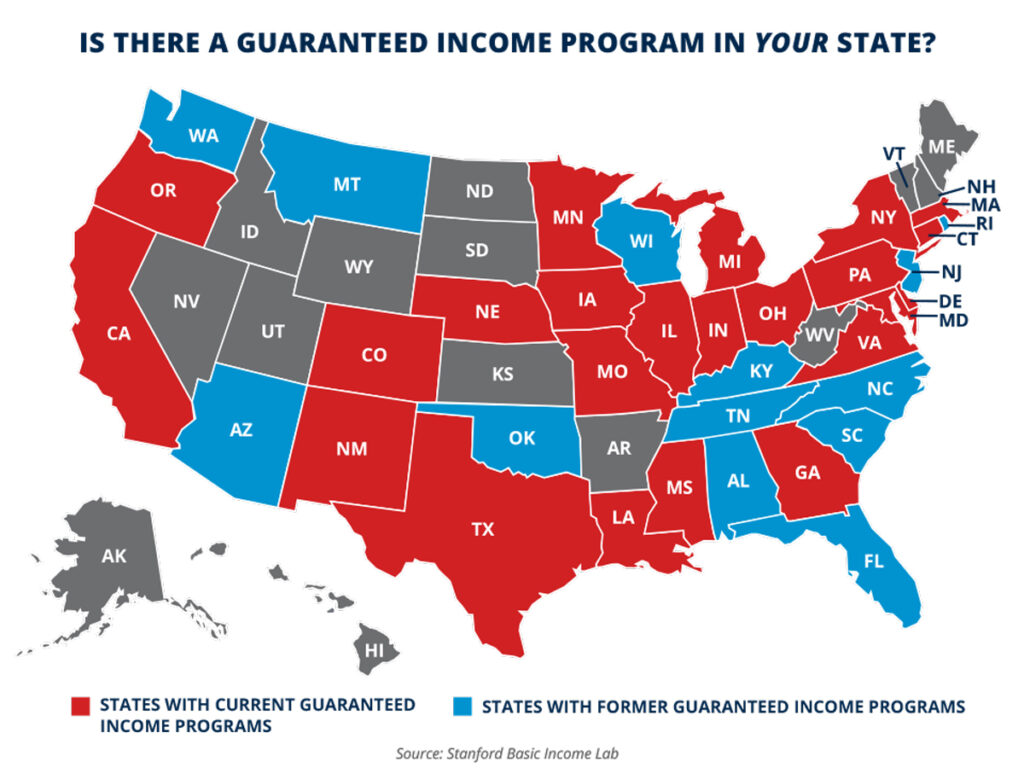South Dakota Bans Guaranteed Income—Here’s Why That’s a Good Thing
- BY FGA
South Dakota took the wise step to ban guaranteed income/universal basic income programs in the state.
Cities across the country are setting a trap with universal basic income pilot programs. It’s a double whammy, too—trapping Americans into dependency and trapping states into expanding welfare.
Universal basic income is a welfare program that provides individuals with recurring cash payments with no strings attached. There are no eligibility requirements or limits on how the money may be used, and it can be given on top of other welfare benefits.
Sometimes it’s targeted to a specific population, other times it’s intended to be truly universal. No matter the name, no matter the target, the problem is the same: Welfare for able-bodied adults with no strings attached furthers the worker shortage, increases inflation, and further damages the economy. States should join South Dakota in banning universal basic income pilot programs.
What’s going on
According to a new paper by FGA Senior Research Fellow Liesel Crocker, there are currently more than 70 active pilot programs. 125 mayors in 34 states and officials in 31 counties have publicly supported pilot programs. States are unwittingly playing host to these socialist experiments, as cities are implementing these pilot programs in hopes that they can manufacture the data they can use to justify spending money giving welfare to the entire state—and national—population.

Here are a few examples of existing pilot programs:
- In Nebraska, a privately funded pilot program is running for 40 months in Omaha, with individuals receiving up to $333 every month. The money that individuals receive from this pilot program doesn’t count towards eligibility for several Nebraska welfare programs, including Medicaid and food stamps.
- St. Louis is putting $5 million of pandemic aid toward their universal basic income program, including $1 million for administrative costs for staff. Not only did bureaucrats make out well, but recipients in this study converted more than a third of the money they received to cash at an ATM or transferred it to another bank account, rendering the dollars that were earmarked for groceries and other essentials completely untraceable.
Why universal basic income is a bad idea
As you can imagine, giving “free” money to a lot of people with no strings attached doesn’t come cheap. These 70 active pilot programs alone could come to a total cost of $2.35 billion, of both private and taxpayer funds. California created a $35 million fund in the state budget to support universal basic income pilot programs.
There are roughly nine million open jobs in the United States, and close to 1.7 million workers missing from the workforce. This country does not need new welfare programs that have a proven track record of reducing labor force participation.
Several major cities, including Seattle and Denver, tested out guaranteed income in the 1970s. The result was a decline in hours worked.
More recently, Americans saw during the pandemic what happens when welfare is given out with no strings attached. The expanded Child Tax Credit, expanded unemployment payments, and other welfare boosts made it possible for Americans across the country to earn more money from welfare than by going back to their work. The result was a worker crisis that lingers today, businesses closing their doors, and rampant inflation.
Advocates for universal basic income like to argue that it will help families rise out of poverty and be able to afford basic goods and services. But this amount of government spending can be devastating to family budgets.
Dramatically increasing welfare spending will make the costs of food, housing, and clothing increase. After President Biden unilaterally increased food stamp benefits, grocery prices rose by at least 15 percent.
On the other hand, encouraging work over welfare instead will raise incomes and help families be able to weather challenging times more easily than encouraging them to trap themselves in dependency.
How states can stop this scheme
There is no need for states or cities to test out universal basic income, because Americans already know that welfare with no strings attached does a lot of harm, and no good.
Universal basic income is another example of the Left circumventing voters and lawmakers to steamroll Americans into accepting their policy ideas. They know universal basic income wouldn’t pass in most statehouses (except California) or in Congress, so they’re using “pilot programs” at the city level to bypass the people’s representatives.
As South Dakota has demonstrated, states aren’t powerless to stop this scheme before it spreads—they can pass legislation to prohibit pilot programs for guaranteed income and universal basic income. Arkansas has also gotten ahead of leftist activists, passing legislation to prevent these programs from being implemented or supported by local government.
